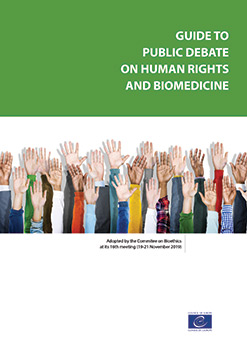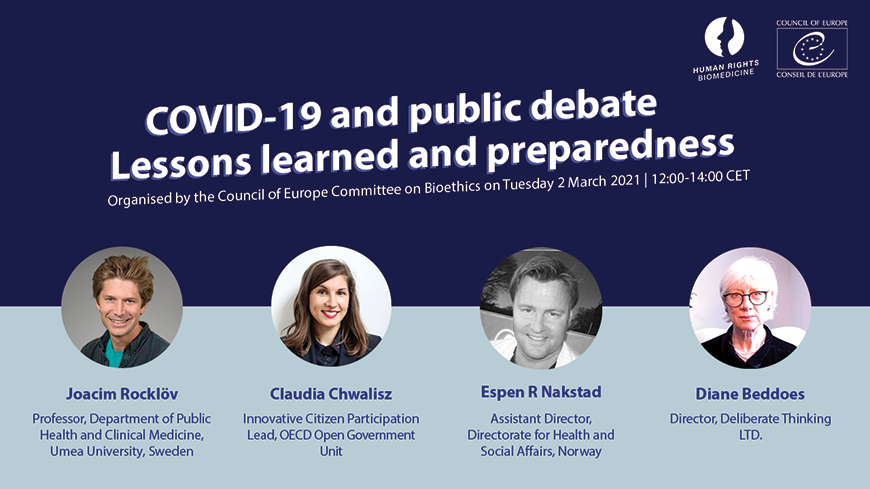Public Debate

Read more
Public debate enables fundamental questions about developments in biology and medicine to be the subject of open and collective discussion and dialogue. As a potential source of important benefit for human health, such developments can also have implications which raise concerns related to inter alia autonomy, privacy, integrity and non-discrimination, as well as equity of access to health care. Such implications are questions not only for experts or authorities but for individuals, groups and society as a whole.
The Guide was developed by the Committee on Bioethics (DH-BIO) on the basis of Article 28 of the Convention on Human Rights and Biomedicine (ETS No 164), the only international legally binding instrument addressing the protection of human rights in biomedicine.
The Guide is primarily addressed to government officials, public authorities, national ethics committees and other relevant educational and academic institutions and organisations.
The Guide highlights the need for public debate, how to prepare for it, ways to make it effective and meaningful.
Parliamentary Assembly report
The parliamentary report on “Ethics in science and technology: a new culture of public dialogue”, which the Parliamentary Assembly of the Council of Europe adopted on 15 September 2020, promotes the DH-BIO Guide to public debate on human rights and biomedicine and emphasises that the Covid-19 pandemic, with its deep impact on societies globally, highlights even more the need to strengthen public dialogue, posing new and complex issues which require participatory policy and decision-making processes during and beyond this crisis.
Moreover, the Parliamentary Assembly of the Council of Europe considers that scientific and technological foresight should no longer remain the exclusive remit of researchers and industry. Public authorities have to involve citizens more widely in decision making on these issues, and policy options should be subject to public debate and scrutiny. Parliaments have a key role to play in this process and should make a wider use of public debate in parliamentary decision-making processes.

Workshop on public dialogue on genomic medicine

COVID-19 and public debate - Lessons learned and preparedness

High-Level Seminar on Public Debate
- Guide to public debate on human rights and biomedicine | November 2019
- Essential Elements - Guide to public debate on human rights and biomedicine | November 2019
- Flyer of the Guide
Related content
- Rapporteurs Report - Workshop on public dialogue on genomic medicine | by mark Bale, April 2023
A guide from the Council of Europe to open the debate on biomedicine (in french)
8 octobre 2020 | RCF radio


